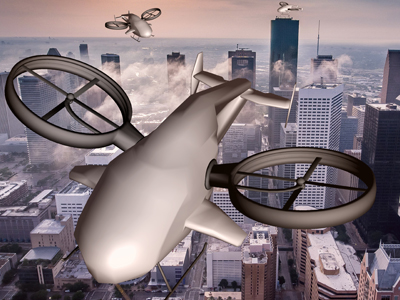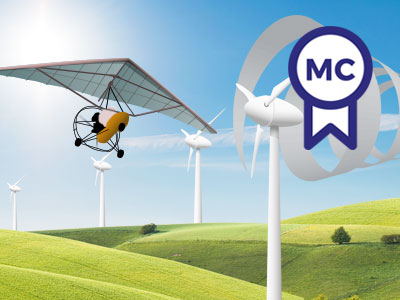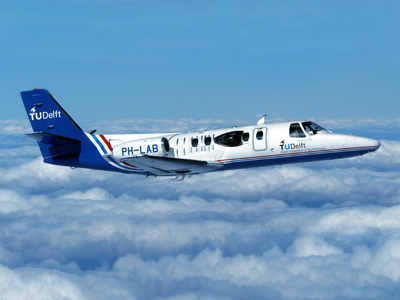Overview
Course video
An introduction to the field of rotorcraft, covering helicopters and hybrid aircraft-rotorcraft configurations.
This course gives you an extended introduction to the field of rotorcraft including conventional helicopters and compound rotorcraft configurations such as tiltrotors. The course underlines helicopter's unique capabilities as mean of transportation and addresses key issues affecting public acceptance of helicopters such as safety and noise. The direction of future rotorcraft development is covered with an outline of the research that is still needed to transform rotorcraft in a reliable future means of transportation.
This course covers the following topics (see "details" tab for more information):
- explaining the context in which helicopters are operated
- examining the limitations in helicopter capabilities from fundamental aerodynamic and dynamic characteristics
- describing the fundamentals of helicopter control and stability
In a dynamic and growing sector of aeronautical industry, this course is useful for those wishing to extend their knowledge on particular applications of rotorcraft. This course is also suited for those willing to move into the area of rotorcraft design, development and simulation.
This course will benefit practicing engineers, managers or other professionals involved in rotary wing engineering, design, testing, operational evaluation or other technical aspects. The course is suitable for entry level engineers and advanced level as well.
Earn a Microcredential with this course
A Microcredential is an additional quality certification for small educational units. It shows what knowledge, competence and experience the participant has gained upon successful completion of the course. A Microcredential is awarded in the form of a digital badge which can be shared and is instantly verifiable.
This certification is awarded to participants who enroll and complete the course starting on February 12, 2024 or later.
More information
Details
Nowadays helicopters are generally reliable flying machines capable of fulfilling missions impossible with fixed-wing aircraft. As Igor Sikorsky said, "If a man is in need of rescue, an airplane can come in and throw flowers on him, and that's just about all. But a direct lift aircraft could come in and save his life." Indeed, whether the helicopter is used in emergencies (for example for saving victims from automobile accidents, shipwrecks earthquakes or fires in high-rise buildings) or as a mean for future transportation, helicopters are actively operating on every continent.
This course addresses these issues by covering the following topics:
- helicopter performance calculations (use of flow conservation laws to develop analytic expressions for rotor downwash, rotor thrust and power requirements)
- analysis of rotor blades flapping motion
- helicopter flight mechanics simulations including helicopter trimming for a range of flight conditions
- stability of helicopter and response to pilot controls
- examples of typical helicopter aeroelastic instabilities
- environmental and attitude analysis of rotorcraft
Students will participate actively in this course using discussion boards on actual topics related to rotorcraft industry. The students on campus can fly SIMONA simulator at Delft University testing themselves the “burdens” of flying helicopters.
Assessment
During the course you will answer different quizzes and complete one final assignment consisting of performance calculations and flight dynamics simulation for a helicopter at your choice flying a pre-selected maneuver. These will be handed in digitally through the Electronic Learning Environment.
Qualifications
Certification
If you successfully complete this online course you will be awarded with a TU Delft certificate.
This certificate will state that you are registered as a non-degree-seeking student at TU Delft and successfully completed the course. The certificate will also indicate the number of ECTS credits this course is equal to (3 ECTS) when this course is taken as part of a degree program at the university.
This course is a MSc course in the Faculty of Aerospace Engineering. If you decide that you would like to apply to the full Master's program in Aerospace Engineering, you will need to go through the admission process as a regular MSc student. If you are admitted, you can then request an exemption for this course that you completed as a non-degree-seeking student. The Board of Examiners will evaluate your request and will decide whether or not you are exempted.
Chartered Engineering Competences
All our online courses and programs have been matched to the competences determined by KIVI’s Competence Structure, a common frame of reference for everyone, across all disciplines, levels and roles.
These competences apply to this course:
- A1: Extend your theoretical knowledge of new and advancing technologies.
Admission
Below, you can find the expected prior knowledge required to participate in this course. Please note that these are provided as indications only. TU Delft will not request proof of this prior knowledge through copies of degrees or diplomas. However, it is your responsibility to ensure that you possess the necessary knowledge, acquired through prior education or relevant work experience.
- A relevant BEng or BSc degree in a subject closely related to the content of the course or specialized program in question, such as aerospace engineering, aeronautical engineering, mechanical engineering, civil engineering or (applied) physics.
- The learning objectives of the following TU Delft courses:
- basic knowledge of aerodynamics and flight dynamics
- Level of English equivalent to one of the following certificates:
- TOEFL score 90+ (this is an internet-based test)
- IELTS (academic version) overall Band score of at least 6.5
- University of Cambridge: "Certificate of Proficiency in English" or "Certificate in Advanced English"
Admission process
In order to complete your admission process you will be asked to upload a valid copy of your passport or ID card.
Contact
If you have any questions about this course or the TU Delft online learning environment, please visit our Help & Support page.


